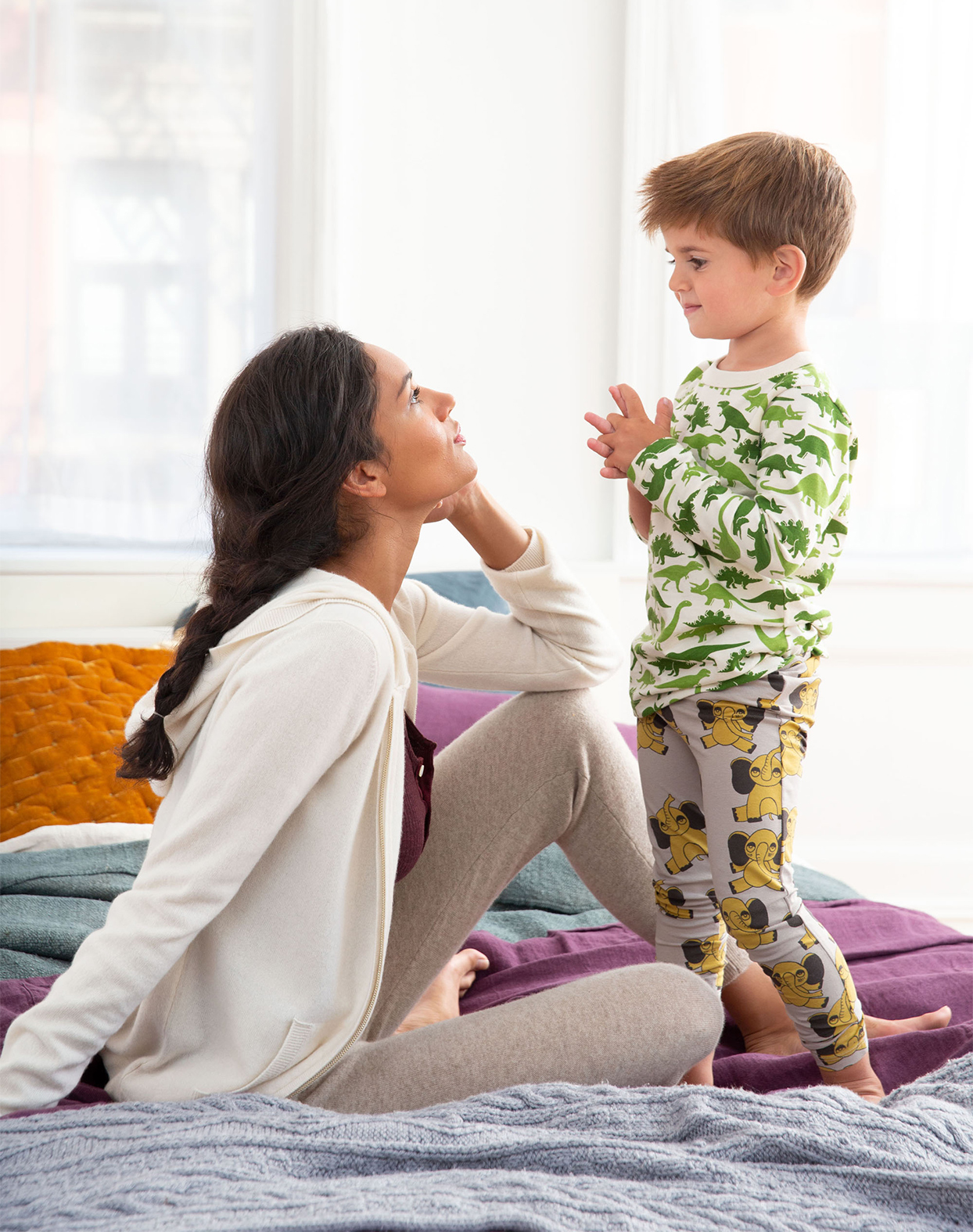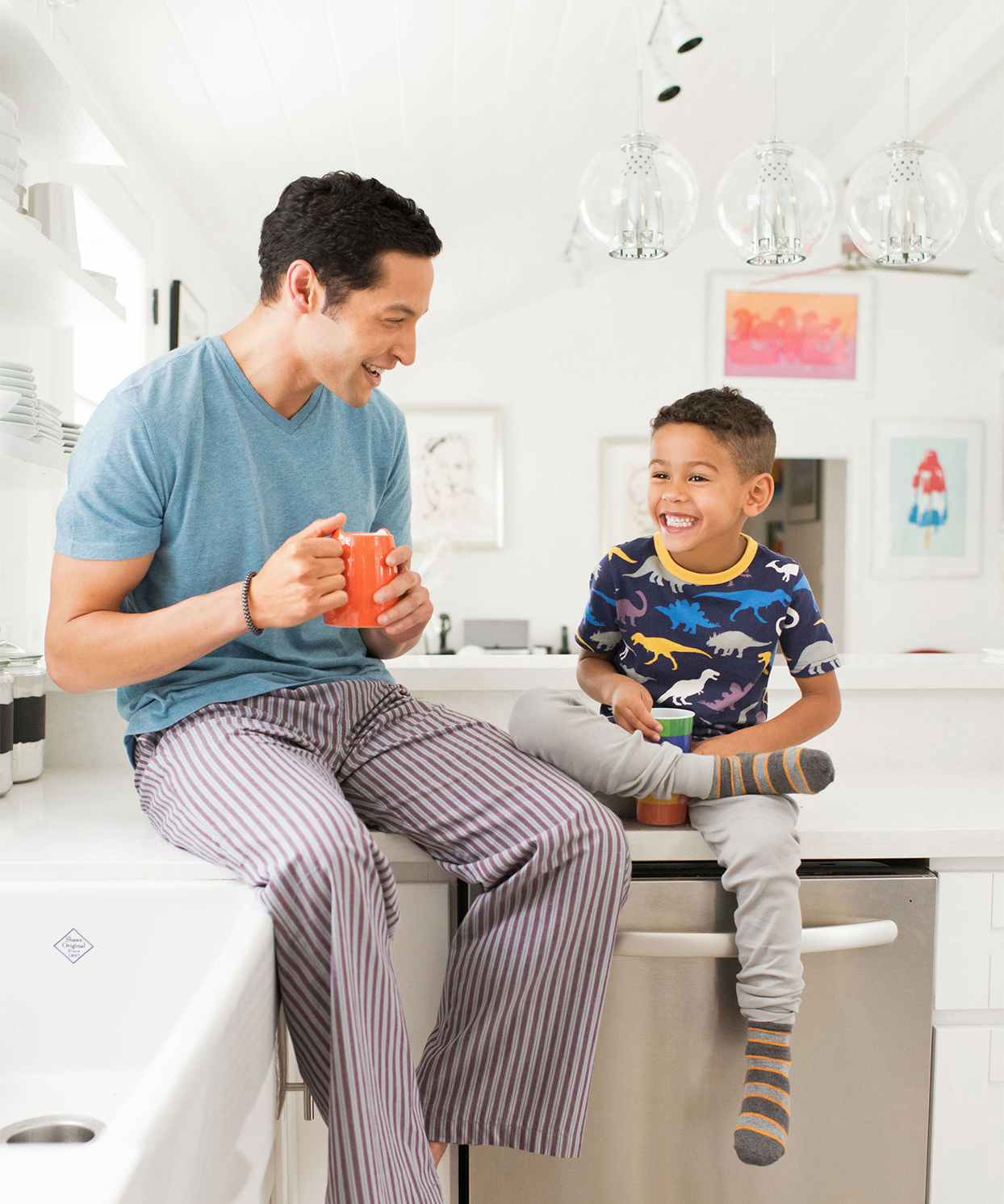
We are, it seems, always listening to our children. We’re listening to the story they’re telling—maybe a dully endless one about a My Little Pony toy she’d named Gongabonga who was “the prettiest pony of all, Mama!” And we’re also listening to the story they’re not telling us about what’s bothering them at school—the one we can hear in the slump of their small shoulders or in the way they’re twisting a napkin around in their worried hands. As parents, we are called on constantly, and in a million different ways, to show up and tune in. It starts when they’re little, and it never ends. And it matters a lot.
“Good listening is how we convey our empathy,” says Michael Nichols, Ph.D., author of The Lost Art of Listening. “It lets children know that their thoughts and feelings matter, and that they are understandable and acceptable as people.” But real listening takes hard work, so think of it as an investment: You’ll be strengthening your kids’ self-esteem, and when your children trust you to pay attention, they’ll be more likely to confide in you when it matters most.
Plus, while you’re trying to hear them clearly, read between the lines and respond thoughtfully. You’ll also be showing your kids how to become good listeners themselves—which is one of the most important skills they’ll ever learn. In fact, experts say that this connected experience of being listened to and then listening in return might just be the key to your children’s successful careers, thriving relationships, and happy lives. Consider these strategies that will benefit your whole family for years to come.
Get ready to listen.
If your child is telling you something, stop what you’re doing if you can. I like to narrate this preparation: “Hang on. Let me close my laptop so that I can really pay attention to what you’re telling me.” Psychotherapist Tina Payne Bryson, Ph.D., coauthor of The Whole-Brain Child, also recommends sitting down. “When you sit, a kid may visibly relax. It communicates, ‘I have time for you. You’re important to me.’” This not only makes your child feel profoundly heard, but it also models good listening habits: concentrating, putting devices away, and valuing relationships above all else.
Quiet your mind.
Think of this as the mental version of closing your laptop. Remind yourself to pay attention. If it sounds like a kind of meditative Zen practice, it is—and it takes practice. I even have a mantra I use to refocus when I’m daydreaming about nachos or running through my work to-do list: I look into the little face I love, and I think, “Tether yourself to this moment.” Says Dr. Bryson, “You can make mistakes, but what your kids need is authentic, flawed, present you.”
However, when you lose focus, you can always say, “I’m sorry. Can you please tell me that last part again? I was distracted for a second.” Parents advisor Lisa Damour, Ph.D., author of Under Pressure, says, “Think of listening as a muscle you build up. And sometimes the workout’s not that fun.” When your child is telling you a story, you don’t need to mentally plan your response or lurch into problem-solving mode. Dr. Damour suggests checking in with yourself: “Am I just listening, or am I waiting to talk?”

Ask good questions.
That said, the essence of effective listening isn’t necessarily silence. When you ask questions, you ascertain what kind of feedback your child is hoping for. Dr. Damour says the fundamental question to ask when a child is feeling upset is, “Do you want my help, or do you just want to vent?” (For a young child, you can say, “Do you want my help, or do you just want to let your feelings out?”) You also want to make sure you understand what they’re saying (“The coach said that just to you or to everyone?”) and to clarify whatever assumptions might underlie their story (“Is soccer going differently than you thought it might?”).
Just try your best to ask questions that don’t contain a hidden agenda. Kate Murphy, author of You’re Not Listening: What You’re Missing and Why It Matters, says, “Good listeners ask good questions. But they have to be questions that aren’t camouflaged attempts to advise, convince, or correct the other person. 'Don’t you want to impress the coach?' or 'Wouldn’t it be better if you were the kind of kid who tried new foods?' are not open and honest questions.”
Say back what you’re hearing.
This is also known as active or reflective listening. It can take the form of brief, responsive interjections—“What fun!” “Ugh!”—or a longer summary: “She didn’t sit near you even though she asked you to save her a seat. That must have really hurt your feelings.” To check that you heard what you thought you heard, Dr. Damour says it’s helpful to use a slightly tentative tone: “Here’s what I think I heard you say. Did I get it?”
For young kids, reflective listening is often as simple as identifying their emotion: ”You’re really mad!” or “You’re so sad!” Dr. Bryson explains, “When we accurately and emphatically name what someone is feeling, it regulates their whole nervous system. Their heart beats more slowly.”
Tune in all the way.
This means listening with your ears, but also with your eyes, your brain, and your heart. “Listening requires presence,” Dr. Bryson says. “You have to be checked in and tuned in, not just to the verbal stuff but to the nonverbal stuff as well. When we’re on our devices, we might only hear the words.” If your child is telling you something and you notice that the words don’t match the feeling you’re getting, go ahead and ask about that—or offer your quiet support. To the terrified-looking child who says, “That was funny when that dog barked at me, right?” you can say, “Funny, and maybe kind of scary. Come sit in my lap. Let’s read a book.”
However, sometimes it’s when we’re not looking that our children reveal themselves most profoundly. Many of the most important conversations I’ve had with my kids have occurred while we were driving, shucking corn side by side, or simply walking. Before bed, we often take “night walks” through our neighborhood. It’s amazing what kids will talk about in the dark, with the moon illuminating their curious or worried faces. And it’s amazing how well we can listen then too.
Catherine Newman is the author of How to Be a Person.
This article originally appeared in Parents magazine's October 2020 issue as “How To Really Hear Your Kid.” Want more from the magazine? Sign up for a monthly print subscription here.
Parents magazine
